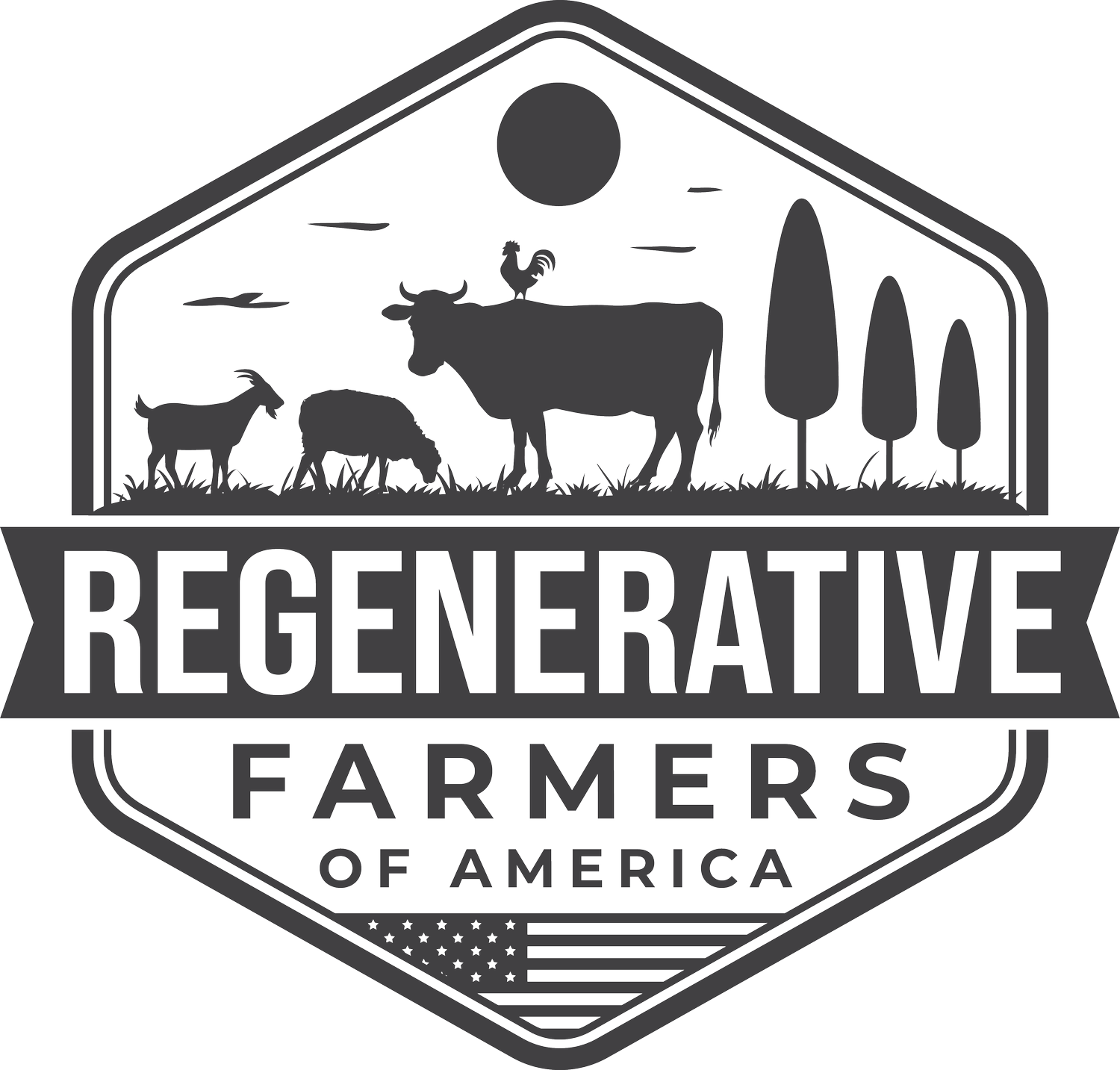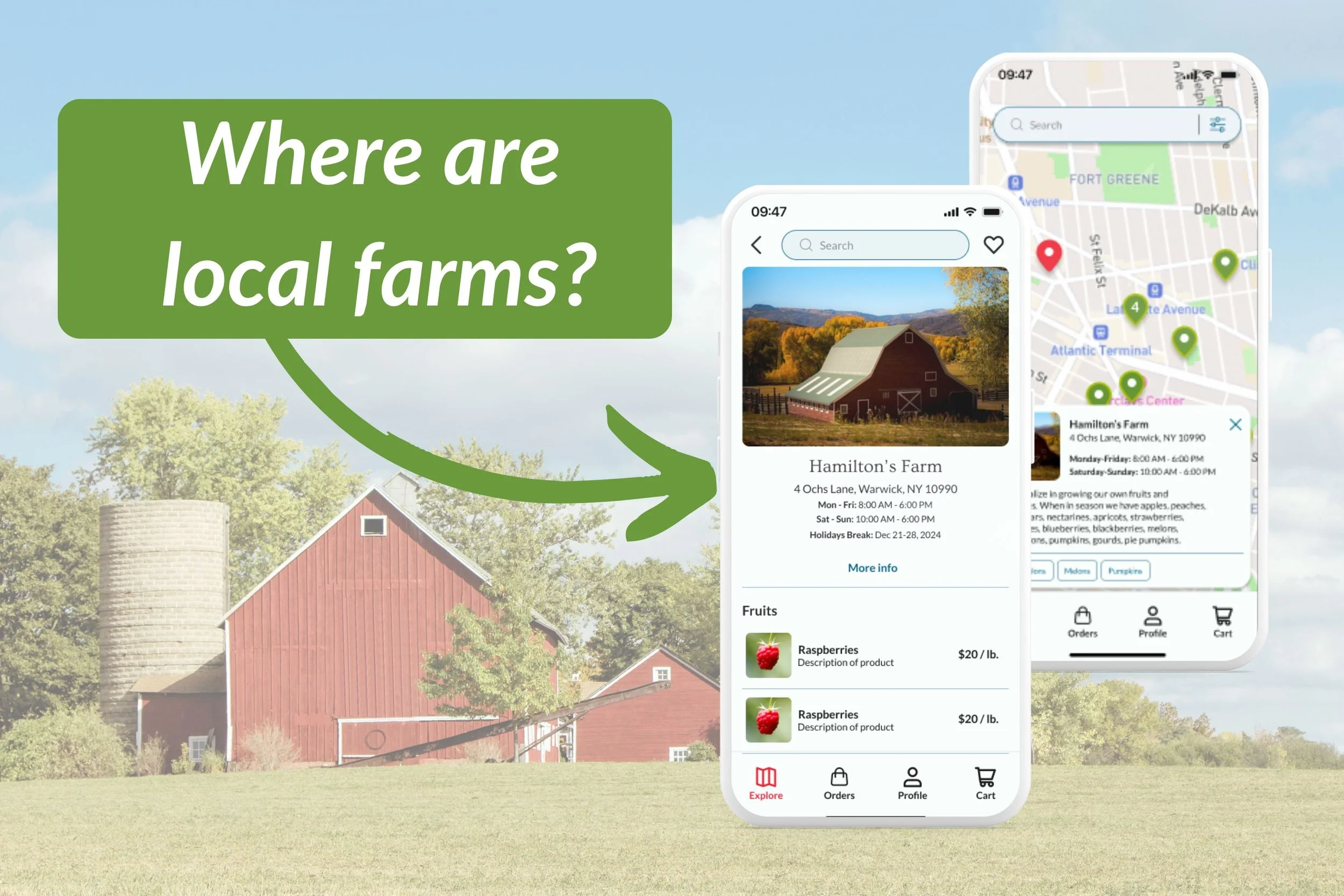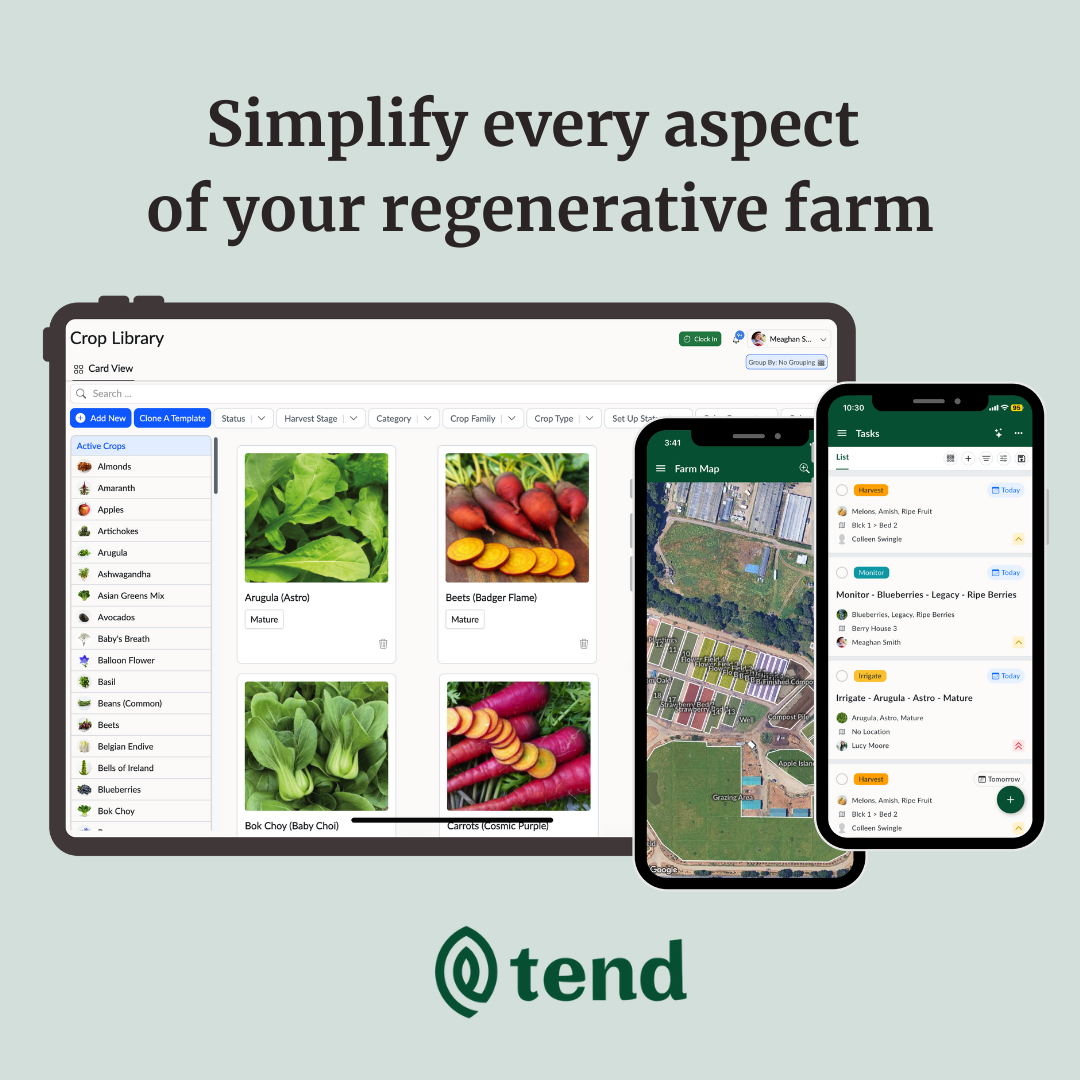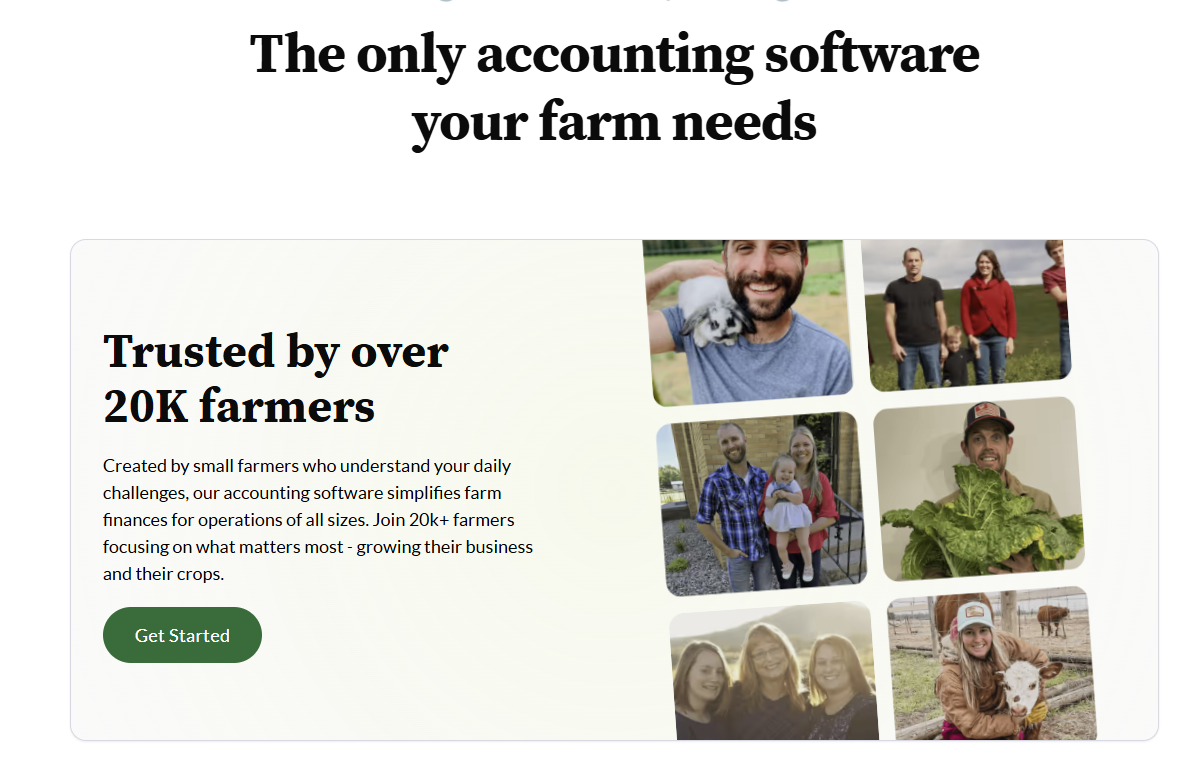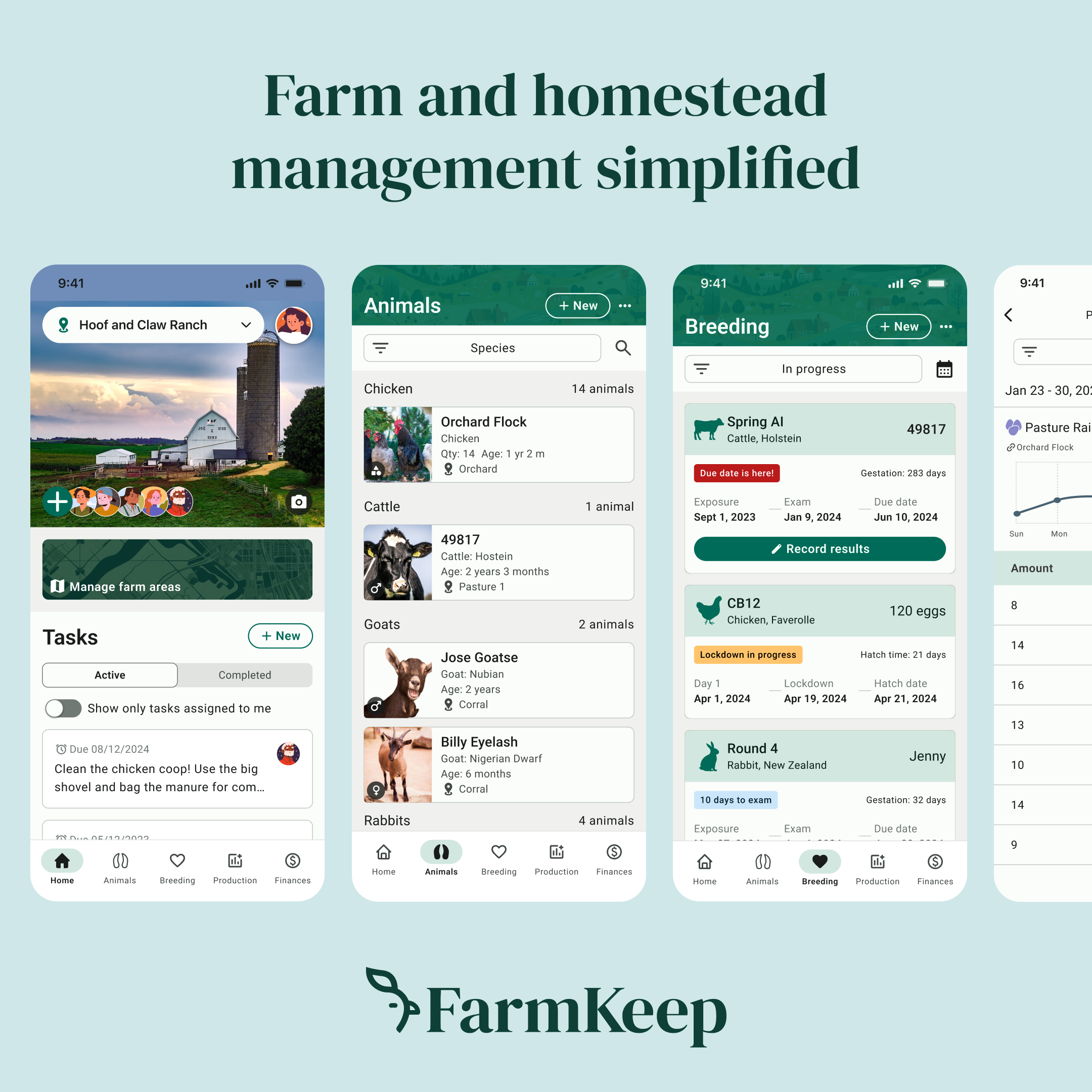Best Software for Farms in 2025
Farming in 2025 is more than just soil and seasons—it's about running a streamlined, data-driven business. Whether you're managing a small diversified homestead or a large regenerative farm, the right software can save time, reduce stress, and increase profits.
This guide covers the best software tools for farmers across categories like farm management, record keeping, accounting, inventory, e-commerce, and more. Whether you're selling eggs or managing 1,000 acres of pasture, there's a tool to fit your farm.

Types of Farm Software
Here are the main categories of farm software to consider:
Farm Marketplaces & E-com Software - Sell products directly to consumers or buyers online.
Farm Management Software: All-in-one systems to manage crops, livestock, labor, and expenses.
Farm Mapping/Design Tools: Helps plan field layouts, rotations, and irrigation.
CSA Software: Manage subscriptions, deliveries, and customer communication.
Accounting Software: Simplify financials, taxes, and grant reporting.
Best Farm Market Places & E-Commerce Platforms
Red Hen
Red Hen is a true online marketplace built specifically for regenerative and small-scale farmers. You can list meat, produce, dairy, eggs, herbs, and more — and Red Hen brings customers to you. It supports local pickup, delivery, and nationwide shipping.
Best for: Farmers who want new customers to find them without having to manage their own website or drive their own traffic.
Tend
The all-in-one, AI-powered farm management software for regenerative farms
Tend helps regenerative farmers like you streamline your operations, reduce paperwork, and make smarter decisions from seed to sale. Designed specifically for diversified farms, Tend brings your planning, tracking, and business management together in one intuitive platform.
Tend makes it easy to plan your crops, assign and track tasks, manage inventory, and monitor sales and expenses all in one place. Whether you’re running a small market garden or managing a larger regenerative operation, Tend adapts to your scale. With Tend, you focus on what matters most: growing healthy soil, strong crops, and a resilient farm ecosystem.
What you can do with Tend:
Plan multiple successions with ease using farm planning tools that help maintain crop diversity and soil health.
Track yields, inputs, and actual labor to measure performance and improve farm productivity.
Manage inventory and sales seamlessly to connect production with your markets.
Keep records for compliance effortlessly to meet organic and regenerative certification standards.
Tend is the all-in-one farm management software that unites crop planning, compliance, operations, sales, and profitability insights. Regenerative farmers like you choose Tend because it simplifies your farm management, strengthens your business, and supports your regenerative farming practices.
Try Tend for free at tend.com. No credit card required.
Best Farm Accounting Software
FarmRaise
FarmRaise is more than just farm accounting software—it's a tool designed to help farmers access funding while staying financially organized. With a user-friendly dashboard, it lets you track farm expenses, generate simple financial reports, and even discover grants, loans, and government cost-share programs tailored to your operation.
Best for:
Farmers who need help managing finances and navigating funding opportunities.
Key Features:
Track income and expenses by enterprise or category
Sync with your bank for automatic transaction tracking
Find and apply for farm grants and cost-share programs
Export reports for taxes or loan applications
Designed specifically for U.S. farmers and USDA programs
Check out FarmRaise here and use code RFA20 for 20% off if its a fit for your farm.
Best Farm Management Software
FarmKeep
FarmKeep is the all‑in‑one farm management app built for homesteads, hobby farms, and small family ranches. Stay organized and save time with record keeping, by effortlessly tracking your animals, breeding, production (eggs, milk, honey, wool), finances, and even tasks and land mapping—all from the ease of your mobile device. With support for over 1,200 species and breeds, FarmKeep adapts to virtually any operation, whether you raise poultry, goats, rabbits, cattle, emus, alpacas—or a little bit of everything.
Log individual animal data like births, weights, vaccinations, pedigrees, health treatments, and breeding history. WIth automatic gestation and incubation calculators, managing breeding activity is a breeze! Track productivity metrics—like rate of gain, milk production, or egg counts—against feed and expenses to optimize efficiency and profitability. Built‑in notifications and reminders keep chores, pasture rotation, breeding schedules, and seasonal projects organized, while financial dashboards make budgeting and tax prep straightforward. It's so easy and simple to use that even 4-H families can use it to manage their projects, along with their larger farm operations.
FarmKeep is built by farmers who also happen to have decades of experience in the tech industry. From day one, we’ve worked hand-in-hand with real farmers, livestock vets, homesteaders, and regenerative ag enthusiasts to shape FarmKeep’s features. Every update, every new tool, and every tweak is inspired by real user feedback. FarmKeep is in active development, and committed to continually improving the platform based on what our users need. Our mission is simple: make farm management radically easier, more affordable, and more enjoyable for anyone growing food, raising animals, and stewarding land.
Use code REGENFARMERS30 for 30 days of premium free!
Benefits of Using Farm Software
Using software tailored for agriculture offers more than just convenience. It provides real-time insights and tools that help farms become more profitable, resilient, and sustainable.
Key benefits:
Improved productivity: Automate daily tasks and manage staff or workflows more efficiently.
Informed decision-making: Access historical and real-time data to plan crops, track yields, and analyze finances.
Time savings: Eliminate manual tracking with smart dashboards and reports.
Compliance readiness: Ensure your records meet organic, GAP, or livestock standards.
Better sales and marketing: Some tools help manage customer relationships, orders, and inventory with ease.
